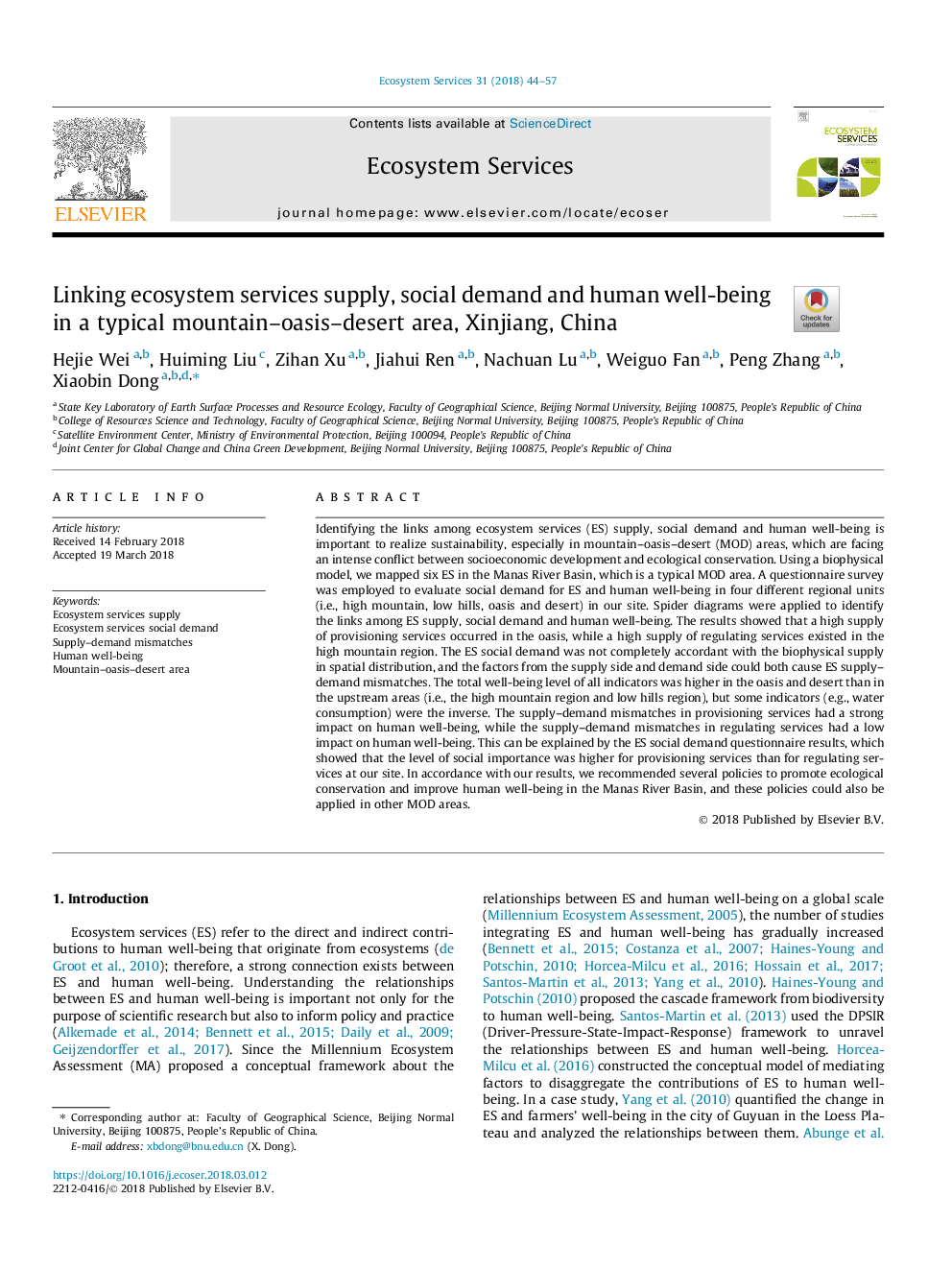ترجمه فارسی عنوان مقاله
پیوند دادن عرضه خدمات اکوسیستم، تقاضای اجتماعی و رفاه انسان در منطقه کویری معمولی کویری، سین کیانگ، چین
عنوان انگلیسی
Linking ecosystem services supply, social demand and human well-being in a typical mountainâoasisâdesert area, Xinjiang, China
| کد مقاله | سال انتشار | تعداد صفحات مقاله انگلیسی |
|---|---|---|
| 93870 | 2018 | 14 صفحه PDF |
منبع

Publisher : Elsevier - Science Direct (الزویر - ساینس دایرکت)
Journal : Ecosystem Services, Volume 31, Part A, June 2018, Pages 44-57

